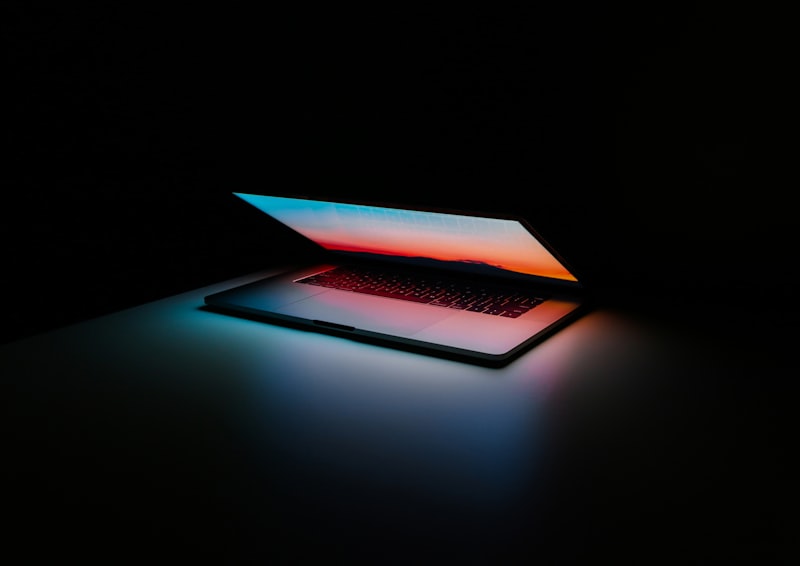How Is AI Changing the Way We Create and Watch Movies?
Moreover, AI is not just a backstage technician; it’s increasingly becoming a creative collaborator. Filmmakers can harness AI to analyze scripts and predict audience preferences, helping to tailor stories that resonate more deeply. AI algorithms can sift through vast amounts of data, from audience demographics to historical box office trends, providing valuable insights that influence everything from plot development to marketing strategies.
In the realm of audience engagement, AI is transforming how movies are watched and consumed. Streaming platforms use AI to recommend movies based on individual viewing habits and preferences. This personalized approach enhances user experience by presenting content that aligns with each viewer’s tastes, ultimately leading to increased viewer satisfaction and retention.
Furthermore, AI is democratizing filmmaking by lowering barriers to entry. Independent filmmakers can now access AI tools that assist in everything from screenplay writing to post-production editing. This accessibility fosters a more diverse range of storytelling perspectives and voices in the cinematic landscape.
From Script to Screen: How AI is Revolutionizing Movie Production
Gone are the days of relying solely on human intuition and experience. AI algorithms now crunch vast amounts of data to predict which scripts are likely to resonate with audiences. By analyzing themes, character development, and even dialogues, AI can suggest changes that could enhance a story’s appeal. This doesn’t mean AI is replacing screenwriters; rather, it acts as a creative collaborator, offering insights that augment human creativity.

Visual effects (VFX) have long been a hallmark of blockbuster films. AI now accelerates this process by generating photorealistic effects with incredible precision. From lifelike creatures to dynamic environments, AI algorithms can create visuals that blur the line between reality and CGI. This efficiency not only cuts down production costs but also opens up creative possibilities previously deemed too complex or expensive.
Furthermore, AI extends its influence beyond the production phase into marketing and distribution. By analyzing audience preferences and viewing patterns, AI helps studios tailor promotional campaigns to target specific demographics effectively. This data-driven approach maximizes a film’s reach and impact, ensuring it resonates with the right audience at the right time.
AI isn’t just a tool; it’s a transformative force reshaping every facet of movie production. From script analysis to visual effects and audience engagement, AI’s integration promises to push the boundaries of storytelling and cinematic experience. As technology advances, so too will the ways in which AI revolutionizes the art and business of making movies.
Lights, Camera, Algorithm: The Role of AI in Modern Filmmaking
Imagine a world where the boundaries of creativity are pushed not just by human imagination, but also by the capabilities of artificial intelligence. In the realm of modern filmmaking, this vision is becoming a tangible reality. Artificial intelligence, or AI, is revolutionizing the way films are made, from scriptwriting to post-production.
One of the most intriguing applications of AI in filmmaking is in the realm of script analysis and generation. Traditional scriptwriting involves hours of brainstorming, drafting, and rewriting. However, AI algorithms can now analyze vast amounts of data from successful films to predict story elements that resonate with audiences. This isn’t just about formulaic storytelling; AI can identify patterns in dialogue, plot structure, and even character development that have proven effective in engaging viewers emotionally.
Moreover, AI is not confined to the writing process alone. During pre-production, AI-powered tools can assist filmmakers in location scouting by analyzing millions of images and videos to suggest optimal filming locations based on predefined criteria such as lighting conditions, scenery, and historical relevance. This saves time and resources, allowing filmmakers to focus more on the creative aspects of their projects.

Post-production, traditionally a painstaking process of editing and special effects, is now streamlined with AI. Advanced algorithms can analyze raw footage to suggest edits, remove imperfections, and even generate complex visual effects that would have previously required extensive manual labor. This not only accelerates the editing process but also opens up new creative possibilities for filmmakers to explore.
Beyond CGI: AI’s Impact on Special Effects and Visual Storytelling
Imagine a scene where a mythical creature swoops down from the sky, its movements so fluid and lifelike that you can almost feel the rush of wind. This isn’t merely the work of talented animators anymore; AI algorithms now analyze real-life animal movements and behaviors to create creatures that move authentically, blurring the line between fantasy and reality.
But it doesn’t stop there. AI is revolutionizing the way scenes are composed and shot. Directors can now visualize complex camera angles and lighting setups virtually before even stepping onto a physical set. This not only saves time and resources but also allows for greater creative experimentation. What was once limited by the constraints of physics and practical effects is now boundless in the digital realm.
Consider the intricate details that AI can enhance. From subtle facial expressions that convey emotion to massive cityscapes that stretch beyond the horizon, AI algorithms can generate and refine these elements with astonishing precision. It’s as if every frame is meticulously crafted by an army of digital artisans, each specialized in their own virtual workshop.
Moreover, AI isn’t just a tool for creating visuals; it’s also a master of storytelling itself. By analyzing vast amounts of data, AI can predict audience preferences and tailor narratives that resonate deeply. It understands the nuances of character development and plot arcs, suggesting twists and turns that keep viewers on the edge of their seats.
In essence, AI has become the unsung hero of modern cinema, pushing the boundaries of what we thought possible in visual storytelling. As technology continues to evolve, one thing is certain: the future of special effects and filmmaking will be shaped by the limitless creativity of AI, where the only barrier is the imagination itself.
The Rise of Virtual Actors: AI’s Influence on Casting and Performance
Imagine a world where actors can be created from lines of code, their expressions and movements meticulously crafted by algorithms. This isn’t just science fiction anymore; it’s the cutting edge of entertainment technology. AI has empowered filmmakers and game developers to push boundaries like never before, offering limitless possibilities in storytelling and character development.
One of the most striking aspects of AI-driven virtual actors is their ability to learn and evolve. Machine learning algorithms analyze vast amounts of data, from facial expressions to vocal intonations, enabling virtual actors to adapt and improve over time. This means that each performance can become more nuanced and realistic, resonating with audiences on a deeper level.
In the realm of filmmaking, AI has democratized access to talent. No longer constrained by physical limitations or scheduling conflicts, filmmakers can create characters that defy traditional casting norms. Want a character with the voice of Morgan Freeman and the looks of Audrey Hepburn? AI makes it possible, offering a palette of possibilities limited only by imagination.
Moreover, virtual actors are not confined by the passage of time. They can remain forever young, immortalized in their prime, or age gracefully as the story demands. This flexibility opens doors to narratives spanning decades or even centuries, offering a dynamic storytelling canvas for creators to explore.
The rise of virtual actors powered by AI marks a paradigm shift in entertainment. It challenges us to rethink the very nature of performance and creativity, inviting us to embrace a future where the boundaries between the real and the virtual blur into a seamless tapestry of storytelling magic. As technology continues to evolve, one thing is certain: virtual actors are here to stay, shaping the future of entertainment in ways we are only beginning to imagine.
AI Critics and Audience Insights: Redefining Movie Reception
Gone are the days when movie reviews were solely the domain of human critics. With advancements in artificial intelligence, analyzing the reception of movies has reached a whole new level. AI critics can process vast amounts of data in seconds, from viewer ratings to social media comments, creating a comprehensive picture of audience sentiment.
Imagine AI as a movie buff with an encyclopedic knowledge of viewer preferences. It sifts through millions of reviews, tweets, and posts to understand what audiences love (or dislike) about a movie. This data isn’t just numbers; it’s a reflection of real-time reactions and emotions shared by people worldwide.
AI critics don’t stop at quantitative data. They delve into qualitative aspects too, analyzing the tone of reviews and comments to gauge the underlying sentiment. Are viewers excited about a plot twist? Do they find a character relatable? These insights help studios understand their audience better than ever before.
What’s fascinating is how AI can predict the success of a movie even before it hits theaters. By analyzing early screenings and online buzz, AI can forecast box office performance with surprising accuracy. It’s like having a crystal ball that interprets the collective excitement or skepticism brewing in the audience.
For filmmakers, AI critics offer invaluable feedback throughout the creative process. From script development to marketing strategies, understanding audience expectations can make or break a movie’s reception. It’s akin to having a focus group of millions, providing insights that shape decisions at every stage of production.
AI critics and audience insights are not just tools; they’re transforming the landscape of movie reception. They bridge the gap between creators and viewers, providing a deeper understanding of what resonates with audiences worldwide. As technology continues to evolve, so too will our ability to decode the mysteries of cinematic success.
